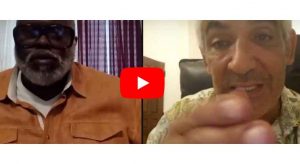**José Rubén Zamora, a leading Guatemalan journalist, has been granted house detention pending a new trial, shedding light on the broader issues of press freedom and political repression in the region.**
**José Rubén Zamora's Release: A Milestone for Press Freedom in Guatemala**

**José Rubén Zamora's Release: A Milestone for Press Freedom in Guatemala**
**After over two years in prison, the prominent journalist's case highlights the challenges facing democracy and media in Latin America.**
In a significant development for press freedom in Guatemala, José Rubén Zamora, the founder and publisher of elPeriódico, is set to transition from prison to house detention after spending more than 810 days incarcerated. The change follows a judge's ruling that Zamora had been held without trial for too long and posed no flight risk. At 68, Zamora expressed his commitment to remain in the country that he calls home, stating, "I have never wanted to flee Guatemala, which is also my country, not just the country of the authorities in power."
Zamora's legal battles began after he was convicted of money laundering, receiving a sentence of up to six years along with a substantial fine of approximately $40,000. He has consistently asserted that the charges against him are politically motivated, retaliatory actions aimed at silencing his investigations into governmental corruption and misconduct.
The trial that led to Zamora's conviction was marked by various irregularities, raising concerns over judicial fairness and due process. Critics argue that the case illustrates the erosion of democratic norms in Guatemala, particularly under the leadership of former President Alejandro Giammattei, whose administration was characterized by escalating threats to journalists and a decline in media independence.
As Zamora awaits a potential re-trial, he is required to remain confined at home while reporting periodically to the authorities. This case not only speaks to the challenges faced by Zamora as an individual but also serves as a symbol of the broader struggle for press freedom within Guatemala and across Latin America, where journalists increasingly face harassment, attacks, and attempts to stifle critical reporting. The outcome of Zamora’s next trial will be pivotal, not only for him but also for the future of investigative journalism in the region.
Zamora's legal battles began after he was convicted of money laundering, receiving a sentence of up to six years along with a substantial fine of approximately $40,000. He has consistently asserted that the charges against him are politically motivated, retaliatory actions aimed at silencing his investigations into governmental corruption and misconduct.
The trial that led to Zamora's conviction was marked by various irregularities, raising concerns over judicial fairness and due process. Critics argue that the case illustrates the erosion of democratic norms in Guatemala, particularly under the leadership of former President Alejandro Giammattei, whose administration was characterized by escalating threats to journalists and a decline in media independence.
As Zamora awaits a potential re-trial, he is required to remain confined at home while reporting periodically to the authorities. This case not only speaks to the challenges faced by Zamora as an individual but also serves as a symbol of the broader struggle for press freedom within Guatemala and across Latin America, where journalists increasingly face harassment, attacks, and attempts to stifle critical reporting. The outcome of Zamora’s next trial will be pivotal, not only for him but also for the future of investigative journalism in the region.





















